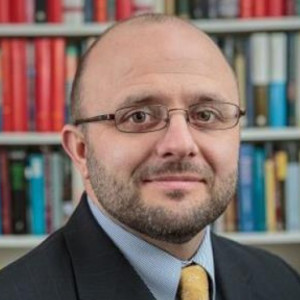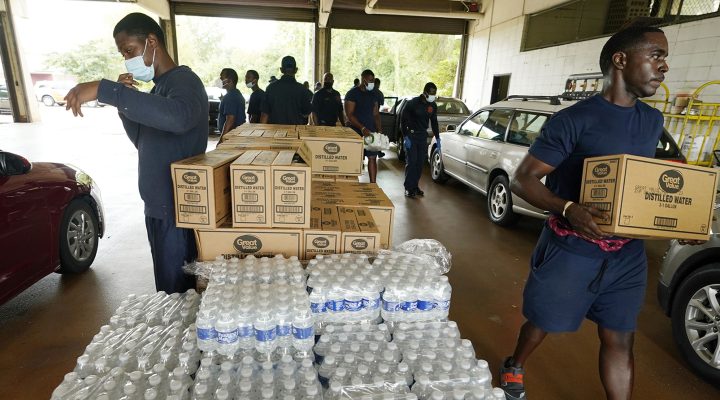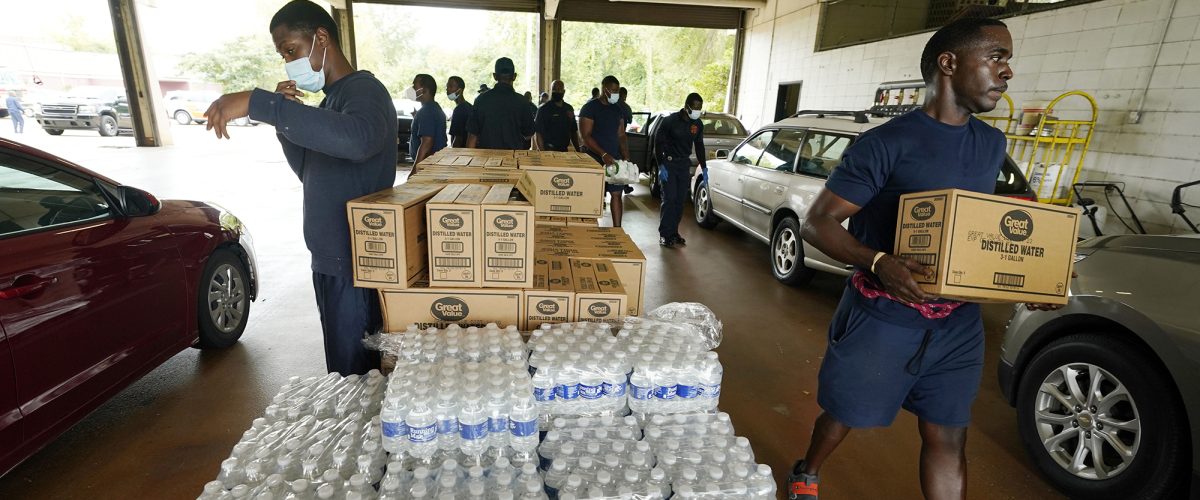Last Sunday, Aug. 28, I was privileged to be in attendance at Northminster Baptist Church in Jackson, Miss., as Pastor Chuck Poole gave his last sermon after 25 years of ministry and his final splash in the baptismal pool.
The service started with him baptizing his granddaughter, which is significant because he always finishes his baptisms with a wonderful litany of sorts that goes something like this: “Of all the millions upon millions upon millions that have been baptized into the Christian faith throughout the centuries, just a few minutes ago, the latest and wettest one was ours.” The way he splashes the water in the air is a sight to behold. If that water wasn’t holy when he walked down into it, it was made holy by what happened in it.
None of us could have known that the very next day after that wet baptism, the state of Mississippi would take control of the Jackson metro water system due to a catastrophic failure. Jackson has been on a boil water notice for nearly five weeks already. Now, there’s no water at all.
What has been difficult for residents, colleges and universities, schools, nursing homes, restaurants and businesses is now impossible. Many schools have moved to virtual learning (something mastered during the pandemic), and college kids are using mobile shower trailers since their colleges and universities have no water. Residents cannot wash their hands, take a shower or flush their toilet.
“More than 180,000 people in our capital city have no water.”
More than 180,000 people in our capital city have no water. How did we get here, and what can we do about it now?
Like everything in Mississippi, this is a long conversation. The fact is, Jackson has been on a decline since integration and the Civil Rights era. People of means — mostly white people — abandoned Jackson and refused to go to the same schools, restaurants and clothing stores with people of color. This is, by definition, white supremacy.
As people of means moved to the suburbs, the city was gutted of its tax base and had less and less money to maintain the infrastructure. Roads, sewer systems, water systems and public school systems increasingly became underfunded and fell into ruin. That is where we are today in Jackson, Miss.
Added to the historical consequences of failing to understand our mutual destiny, our city officials simply will not work together. They have sued each other over garbage pick-up and other public works items.
If city officials were working together to solve the toughest issues in Jackson, we might not be in this situation — despite the historical legacy racism plays here. But they have refused to put their egos aside and work for the people of Jackson.
This is a real disappointment because so many of us had such high hopes for our mayor. The people who are suffering most right now would make better decisions than our elected officials given the opportunity — but that may always be the case.
“The people who are suffering most right now would make better decisions than our elected officials given the opportunity.”
So, what can we do? I work with a coalition in the Jackson metro area that brings together nonprofits and religious organizations. The Cooperative Baptist Fellowship of Mississippi stands side-by-side with New Horizon Church International, the Episcopal Diocese of Mississippi, the Catholic Diocese of Jackson, Temple Beth Israel, the International Museum of Muslim Cultures and so many more religious and nonprofit organizations advocating for what’s best in our capital city and our state.
Through Working Together Jackson, we join our voices into a collective and speak truth to power (and speak truth with power). With these sisters and brothers, we are setting up a water drop-off and distribution site in South Jackson, a neighborhood that usually suffers most during crises like this one. We also are urging our elected officials to work together within the city and between the city and state.
Jenny Howell’s article about Wendell Berry’s idea of “difficult hope” (“Wendell Berry’s ‘Difficult Hope’” in Perspectives in Religious Studies) is an important dialogue partner right now. She describes how Berry understands hope and hopelessness. There is a silence that accompanies hopelessness. When there is no hope, when all hope is lost, what can you say? Nothing.
The opposite of this kind of silence is protest. Protest is a sign of hope; protest is hope. Protest calls for something better because protest believes that there is something better.
This is how I understand our work in Jackson. Our protest in this moment, and in the moment of protest about the state flag of Mississippi, and in the moment of protest for extending Medicaid, comes from a place of hope.
We know we can do better, and we are calling on our elected officials to do better. If they will hear our hope and respond accordingly, it could be the beginning of a rebuilding project that is a lot deeper than water.
If they will hear our voices and respond accordingly, this could be the beginning of rebuilding public trust. If not, Jackson could turn completely silent — and dry.

Jason Coker
Jason Coker serves as coordinator of Cooperative Baptist Fellowship of Mississippi and as president of Together for Hope.
Related articles:
In Flint, Mich., a Baptist pastor and a Nation of Islam leader join in a call for justice
Coker named to elite futurism cohort, benefiting Together for Hope
Together for Hope inspires communities to see what they’ve got more than what they’re lacking


